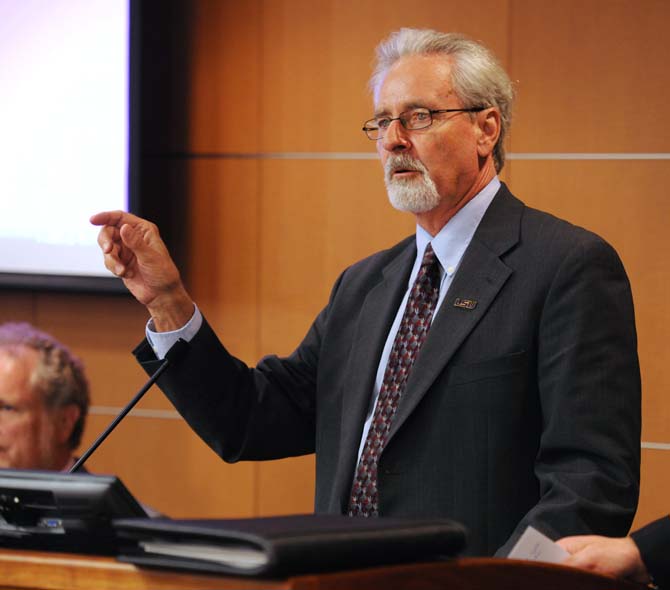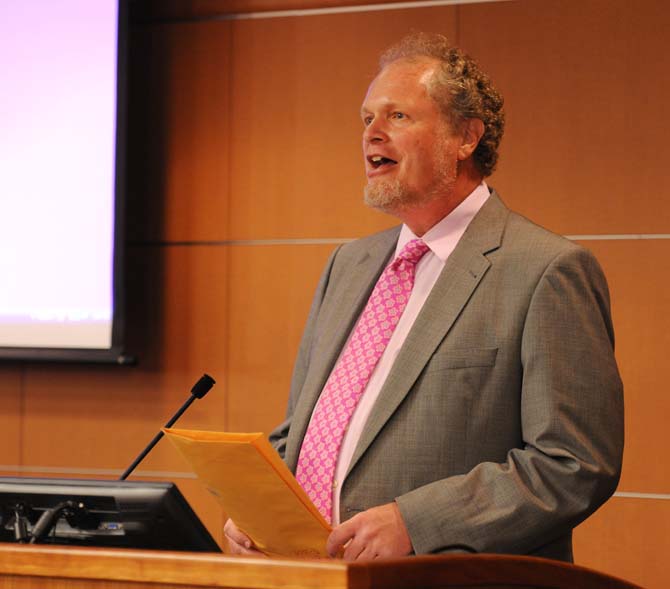The University is “ramping up” its efforts to increase online learning, said Associate Vice Chancellor for Enrollment Management David Kurpius at Wednesday’s Faculty Senate meeting.
The University currently offers online learning in graduate school programs. Kurpius said 17 students are enrolled across the programs, but they expect more in the fall and next spring.
“Inquiries are ramping up significantly. We see the flood coming,” he said.
Kurpius said students involved are non-traditional students who have jobs and families.
The programs offered online are courses that started as on-campus classes.
“Courses have been approved, recognized as… three-hour courses and then delivered in a format that allows [them] to be taught in seven weeks. I think it’s the way of the future,” said T. Gilmour Reeve, vice provost for Academic Programs, Planning and Review.
Reeve and Kurpius said it is crucial for the University to progress in online learning.
“Even today, we’re behind. We risk being left in the dust by our peers and our aspirational peers as even smaller universities get ahead of us,” Kurpius said. “This is a race to make sure our brand resonates in the online world.”
Reeve said institutions are quickly moving ahead with use of online education.
“Major research institutions are fully engaged in online education. LSU needs to be a player,” he said.
Kurpius said they want to ensure a degree online is “every bit as rigorous and valuable” as an on-campus degree.
Kurpius said the price for an online Master of Business Administration would be the same as it is on-campus.
“We have to price the programs based on what the marketplace will handle. We are not allowed by the Board of Supervisors to go above in-state tuition,” he said. “The goal is a one-price degree for each program.”
Academic Partnerships, a business that helps universities develop and market their online programs, will help the University with the process, Kurpius said.
Academic Parternships is providing marketing support, retention support, help to faculty and assistance with Moodle and technical support for online students, among others, he said.
Of in-state tuition, 50 percent will go to Academic Partnerships and 50 percent will go to the University, Kurpius said. The central administrative running the program gets 35 percent of what’s left and the individual college gets 65 percent.
“Even today, we’re behind. We risk being left in the dusk by our peers and our aspirational peers as even smaller universities get ahead of us.”






